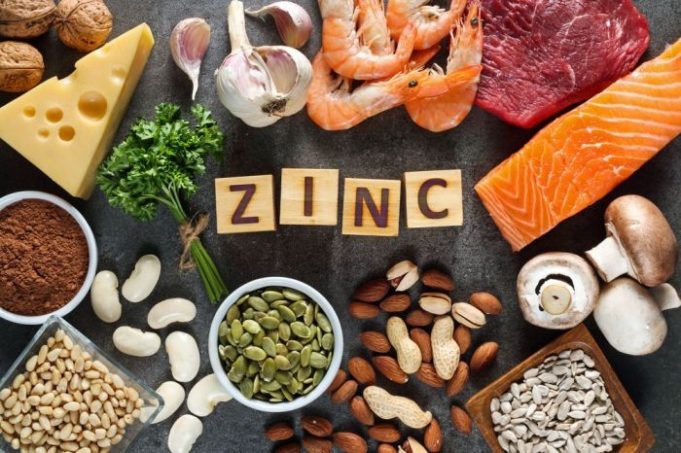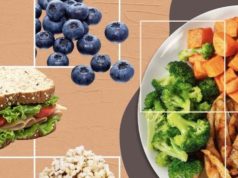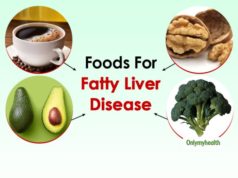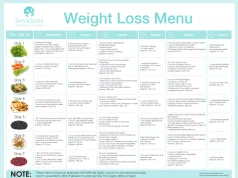How to get zinc in your diet sets the stage for this enthralling narrative, offering readers a glimpse into a story that is rich in detail and brimming with originality from the outset. Zinc, an essential mineral, plays a vital role in numerous bodily functions, from immune system support to wound healing. A balanced diet rich in zinc-rich foods is crucial for maintaining optimal health and well-being.
This guide will explore the importance of zinc, the recommended daily intake, and how to incorporate zinc-rich foods into your meals. We’ll also delve into the potential benefits and drawbacks of zinc supplements, discuss the symptoms of zinc deficiency and toxicity, and provide tips for maximizing zinc absorption. By understanding the role of zinc in our bodies and implementing practical strategies, we can ensure we’re getting enough of this essential mineral to support our overall health.
Importance of Zinc
Zinc is an essential mineral that plays a crucial role in various bodily functions. It’s involved in over 300 enzymatic reactions, supporting everything from immune system health to wound healing.
Health Benefits of Adequate Zinc Intake
A sufficient zinc intake offers numerous health benefits, including:
- Immune system function: Zinc helps strengthen the immune system by supporting the production and activity of white blood cells, which are essential for fighting infections.
- Wound healing: Zinc is vital for tissue repair and wound healing, as it helps in the formation of collagen, a protein that provides structural support to skin and other tissues.
- Cell growth and development: Zinc is essential for cell growth and development, particularly during pregnancy and childhood. It plays a role in DNA synthesis and cell division.
- Taste and smell: Zinc is involved in the sense of taste and smell. Deficiency can lead to impaired taste and smell perception.
- Cognitive function: Zinc contributes to cognitive function, including memory, learning, and attention. Studies have shown a link between zinc deficiency and impaired cognitive function.
Health Problems Associated with Zinc Deficiency
Zinc deficiency can lead to various health problems, affecting different aspects of the body:
- Impaired immune function: Zinc deficiency weakens the immune system, making individuals more susceptible to infections, such as colds, flu, and pneumonia.
- Delayed wound healing: Without adequate zinc, wound healing can be slowed down, increasing the risk of infections and complications.
- Hair loss: Zinc deficiency can contribute to hair loss, as it is essential for hair growth and development.
- Skin problems: Zinc deficiency can lead to skin problems, such as acne, eczema, and delayed wound healing.
- Reproductive health issues: Zinc plays a crucial role in male reproductive health, contributing to sperm production and testosterone levels. Deficiency can affect fertility.
- Cognitive decline: Zinc deficiency can impair cognitive function, leading to memory problems, learning difficulties, and attention deficits.
Recommended Daily Intake
The recommended daily intake (RDI) of zinc varies depending on age, gender, and specific health conditions. It is essential to consume sufficient zinc to support optimal health and well-being.
RDI for Different Age Groups and Genders
The following table summarizes the recommended daily intake of zinc for different age groups and genders:
| Age Group | Male (mg) | Female (mg) |
|---|---|---|
| 0-6 months | 2 mg | 2 mg |
| 7-12 months | 3 mg | 3 mg |
| 1-3 years | 3 mg | 3 mg |
| 4-8 years | 5 mg | 5 mg |
| 9-13 years | 8 mg | 8 mg |
| 14-18 years | 11 mg | 9 mg |
| 19 years and older | 11 mg | 8 mg |
| Pregnancy | 11 mg | 12 mg |
| Lactation | 11 mg | 13 mg |
Factors Influencing Zinc Needs
Several factors can influence individual zinc requirements, including:
- Pregnancy: During pregnancy, the body’s zinc needs increase to support fetal growth and development. The increased demand for zinc is crucial for a healthy pregnancy outcome.
- Lactation: Breastfeeding mothers require additional zinc to produce breast milk, which is a rich source of this essential mineral for infants. Adequate zinc intake during lactation is essential for both the mother’s and the infant’s health.
- Illness: Infections, injuries, and chronic diseases can increase zinc requirements. During illness, the body’s demand for zinc rises to support immune function and tissue repair.
- Vegetarian or Vegan Diets: Individuals following vegetarian or vegan diets may need to pay particular attention to their zinc intake, as plant-based sources of zinc are generally less bioavailable than animal-based sources.
- Gastrointestinal Disorders: Conditions affecting the digestive system, such as Crohn’s disease or celiac disease, can impair zinc absorption, leading to increased needs.
- Alcohol Consumption: Excessive alcohol consumption can interfere with zinc absorption and increase zinc excretion, potentially leading to deficiency.
Zinc-Rich Foods: How To Get Zinc In Your Diet
Zinc is an essential mineral that plays a crucial role in various bodily functions, including immune system support, wound healing, and cell growth. To ensure you meet your daily zinc requirements, incorporating zinc-rich foods into your diet is essential.
Zinc-Rich Food Sources
A diverse range of foods contain significant amounts of zinc. Here’s a table outlining some common food groups and their respective zinc content:
| Food Group | Food Examples | Zinc Content per Serving (mg) | Serving Size |
|---|---|---|---|
| Meat and Poultry | Beef, chicken, lamb, pork | 5-10 mg | 3 oz |
| Seafood | Oysters, crab, lobster, salmon | 5-15 mg | 3 oz |
| Legumes | Beans, lentils, chickpeas | 2-4 mg | 1/2 cup cooked |
| Nuts and Seeds | Pumpkin seeds, cashews, almonds | 2-5 mg | 1/4 cup |
| Dairy Products | Milk, yogurt, cheese | 1-3 mg | 1 cup |
| Whole Grains | Brown rice, quinoa, oats | 1-2 mg | 1/2 cup cooked |
Sample Meal Plan
Here’s a sample meal plan incorporating zinc-rich foods from various food groups:
Breakfast: Oatmeal with pumpkin seeds and a glass of milk.
Lunch: Grilled chicken salad with chickpeas, mixed greens, and a side of quinoa.
Dinner: Baked salmon with roasted vegetables and brown rice.
Snacks: Almonds, yogurt, or a handful of cashews.
Tips for Increasing Zinc Intake
Boosting your zinc levels can be achieved through various dietary strategies. This involves incorporating zinc-rich foods into your daily meals and adopting techniques that enhance zinc absorption from your diet.
Incorporating Zinc-Rich Foods
Increasing your zinc intake through dietary means is a simple yet effective way to maintain optimal zinc levels. To achieve this, you can incorporate a variety of zinc-rich foods into your daily meals.
- Seafood: Oysters are renowned for their exceptional zinc content, boasting an impressive 74 milligrams per 3-ounce serving. Other seafood options like crab, lobster, and shrimp also offer a significant amount of zinc. Incorporating these seafood varieties into your diet can provide a substantial boost to your zinc intake.
- Meat: Red meat, such as beef and lamb, is a rich source of zinc, providing approximately 5 milligrams per 3-ounce serving. Poultry, like chicken and turkey, also contributes a good amount of zinc, offering about 3 milligrams per 3-ounce serving.
- Beans and Legumes: These plant-based sources of protein are a good source of zinc. For example, a cup of cooked chickpeas contains around 3 milligrams of zinc.
- Nuts and Seeds: Nuts and seeds, such as pumpkin seeds, cashews, and almonds, are packed with zinc. A 1/4 cup serving of pumpkin seeds provides approximately 7 milligrams of zinc, making them a convenient and tasty option for increasing zinc intake.
- Dairy Products: Milk, cheese, and yogurt are good sources of zinc. A cup of milk contains around 1 milligram of zinc.
Maximizing Zinc Absorption
The body’s ability to absorb zinc from food can be influenced by various factors. By implementing strategies that enhance zinc absorption, you can maximize the benefits of your zinc-rich diet.
- Combining Zinc-Rich Foods with Vitamin C: Vitamin C enhances zinc absorption. Pairing zinc-rich foods with foods rich in vitamin C, such as citrus fruits, berries, and bell peppers, can optimize zinc uptake. For example, a grilled chicken breast with a side of broccoli and a glass of orange juice offers a combination of zinc and vitamin C.
- Limiting Phytates: Phytates, found in grains and legumes, can interfere with zinc absorption. To minimize this effect, soaking or sprouting grains and legumes before cooking can reduce their phytate content.
- Avoiding Excessive Iron Intake: High iron intake can compete with zinc absorption. While iron is essential, it’s crucial to maintain a balanced intake and avoid excessive consumption of iron-rich foods, such as red meat and spinach.
Dietary Interventions for Zinc Deficiency
In cases of zinc deficiency, dietary interventions can play a crucial role in restoring zinc levels. These interventions involve incorporating specific foods into your diet and making adjustments to your eating habits.
- Increasing Consumption of Zinc-Rich Foods: Prioritizing zinc-rich foods, such as oysters, red meat, and pumpkin seeds, is a fundamental step in addressing zinc deficiency. This ensures a consistent supply of zinc to meet your body’s needs.
- Supplementation: In cases of severe zinc deficiency, zinc supplements may be recommended by a healthcare professional. These supplements provide a concentrated source of zinc, allowing for rapid replenishment of zinc levels.
Note: It’s crucial to consult a healthcare professional before taking any supplements, as excessive zinc intake can be harmful.
Zinc Supplements
Zinc supplements can be a helpful way to increase your zinc intake, especially if you don’t get enough from your diet. They come in various forms, each with its own advantages and disadvantages.
Benefits of Zinc Supplements
Zinc supplements offer several potential benefits, including:
- Boosting the immune system: Zinc plays a crucial role in immune function, helping to fight off infections. Supplements can help to strengthen the immune system, particularly during times of stress or illness.
- Improving wound healing: Zinc is essential for the production of collagen, a protein that helps to repair damaged tissues. Supplements can help to speed up wound healing and reduce scarring.
- Supporting healthy skin: Zinc is an important antioxidant that helps to protect the skin from damage caused by free radicals. Supplements can help to improve skin health and reduce the appearance of acne and other skin conditions.
- Enhancing cognitive function: Zinc is involved in various brain processes, including learning, memory, and attention. Supplements may help to improve cognitive function, particularly in older adults.
Potential Drawbacks of Zinc Supplements
While zinc supplements can be beneficial, it’s important to be aware of potential drawbacks:
- Gastrointestinal upset: Taking high doses of zinc supplements can cause gastrointestinal upset, including nausea, vomiting, and diarrhea.
- Copper deficiency: High doses of zinc can interfere with copper absorption, potentially leading to copper deficiency. This can cause anemia, fatigue, and other health problems.
- Interactions with medications: Zinc supplements can interact with certain medications, such as antibiotics and diuretics. It’s essential to talk to your doctor before taking zinc supplements if you’re taking any medications.
- Toxicity: Taking excessive amounts of zinc can lead to zinc toxicity, which can cause a range of symptoms, including vomiting, diarrhea, and fever. In severe cases, zinc toxicity can be fatal.
Types of Zinc Supplements
There are various types of zinc supplements available, including:
- Zinc sulfate: This is the most common type of zinc supplement. It’s generally well-tolerated and affordable.
- Zinc gluconate: This form of zinc is gentler on the stomach and may be a better choice for people who experience gastrointestinal upset with other forms of zinc.
- Zinc picolinate: This type of zinc is highly absorbable and may be more effective than other forms of zinc.
- Zinc acetate: This form of zinc is often used in lozenges and nasal sprays to treat the common cold.
Choosing the Right Zinc Supplement
When choosing a zinc supplement, it’s important to consider your individual needs and preferences:
- Dosage: The recommended daily intake of zinc is 11 mg for men and 8 mg for women. However, your doctor may recommend a higher dosage if you have a zinc deficiency or other health concerns.
- Form: Choose a form of zinc that you tolerate well. If you have a sensitive stomach, zinc gluconate may be a better option than zinc sulfate.
- Quality: Look for supplements that are made by reputable manufacturers and have been third-party tested for purity and potency.
- Interactions: Talk to your doctor before taking zinc supplements if you’re taking any medications.
Zinc Deficiency Symptoms
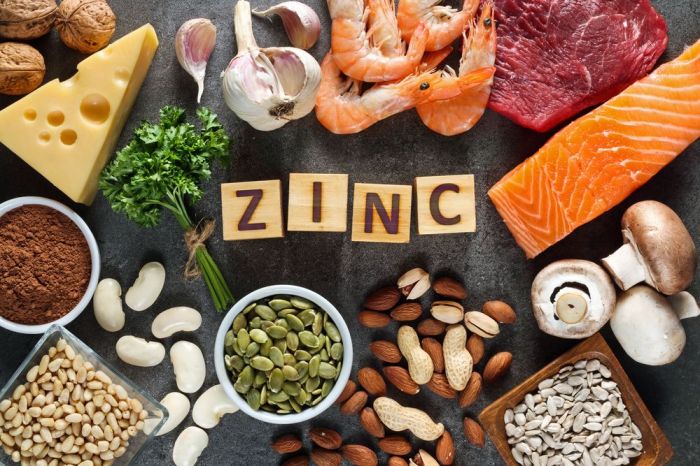
Zinc deficiency, also known as hypozincemia, occurs when your body doesn’t have enough zinc. It can affect various systems in your body, leading to a range of symptoms. While mild deficiency may not cause noticeable symptoms, severe zinc deficiency can lead to serious health problems.
Immune System
Zinc plays a crucial role in immune function. It helps your body fight off infections and diseases. When you don’t have enough zinc, your immune system weakens, making you more susceptible to infections.
- Frequent colds and flu
- Delayed wound healing
- Increased risk of infections
Skin and Hair
Zinc is essential for maintaining healthy skin and hair.
- Dry, flaky skin
- Hair loss or thinning
- Slow wound healing
- Skin rashes and sores
Digestive System
Zinc deficiency can affect your digestive system, leading to:
- Diarrhea
- Loss of appetite
- Nausea and vomiting
Growth and Development
Zinc is vital for growth and development, especially in children. Deficiency can lead to:
- Delayed growth and development
- Impaired cognitive function
- Delayed sexual maturation
Other Symptoms
Zinc deficiency can also cause a variety of other symptoms, including:
- Fatigue and weakness
- Headaches
- Taste and smell disturbances
- Depression and anxiety
- Eye problems
- Impaired sense of taste and smell
Recognizing Zinc Deficiency, How to get zinc in your diet
If you experience any of the above symptoms, it’s essential to consult a doctor. They can perform blood tests to determine if you have a zinc deficiency.
Zinc Toxicity
While zinc is essential for good health, taking too much can lead to zinc toxicity. This condition can cause various health problems, so it’s crucial to understand the potential risks and how to avoid them.
Symptoms of Zinc Overdose
Zinc toxicity occurs when you consume excessive amounts of zinc, exceeding the recommended daily intake. It’s important to note that the symptoms of zinc toxicity vary depending on the severity of the overdose.
Here are some common symptoms of zinc overdose:
- Nausea and vomiting
- Diarrhea
- Stomach cramps
- Loss of appetite
- Headache
- Fatigue
- Fever
- Metallic taste in the mouth
- Dizziness
- Copper deficiency (can occur with long-term high zinc intake)
In severe cases, zinc toxicity can lead to more serious health problems, including:
- Liver damage
- Kidney damage
- Anemia
- Immune system suppression
Avoiding Zinc Toxicity
To avoid zinc toxicity, it’s essential to adhere to the recommended daily intake of zinc, which is 11mg for men and 8mg for women. However, it’s important to note that this intake can vary based on individual needs and health conditions.
Here are some tips to avoid zinc toxicity:
- Don’t exceed the recommended daily intake of zinc. The recommended daily intake for zinc is 11mg for men and 8mg for women. However, it’s important to note that this intake can vary based on individual needs and health conditions.
- Avoid taking multiple zinc supplements simultaneously. Taking multiple zinc supplements simultaneously can significantly increase your zinc intake, leading to toxicity.
- Choose zinc supplements with caution. When choosing zinc supplements, opt for those that contain the recommended daily intake of zinc. Always consult with a healthcare professional before taking any supplements.
- Be aware of zinc-rich foods. If you consume a balanced diet with a variety of foods, you’re less likely to experience zinc toxicity.
- Monitor your zinc intake. If you’re concerned about zinc toxicity, consult with a healthcare professional to monitor your zinc intake.
Summary
In conclusion, incorporating zinc-rich foods into your diet is essential for maintaining optimal health. By understanding the importance of zinc, its recommended intake, and the various food sources, you can make informed choices to ensure adequate zinc levels. While supplements can be beneficial in certain cases, a balanced diet remains the cornerstone of a healthy zinc intake. Remember to consult with your healthcare provider if you suspect you may have a zinc deficiency or are considering taking supplements. By prioritizing zinc in your diet, you can contribute to a strong immune system, healthy growth and development, and overall well-being.
FAQ Explained
Can I get too much zinc from food?
It’s unlikely to get too much zinc from food alone, as your body regulates zinc absorption. However, excessive intake of zinc supplements can lead to toxicity.
What are some signs of zinc deficiency?
Common signs include impaired immune function, slow wound healing, hair loss, and taste changes.
Can vegetarians get enough zinc?
Yes, vegetarians can meet their zinc needs through plant-based sources like legumes, nuts, and seeds.
Are there any foods that block zinc absorption?
Phytates found in grains and legumes can interfere with zinc absorption. However, soaking and sprouting can reduce phytate levels.
Zinc is an essential mineral that plays a vital role in many bodily functions. Getting enough zinc in your diet is crucial for maintaining a healthy immune system, supporting wound healing, and promoting cell growth. While focusing on a balanced diet rich in zinc-rich foods like oysters, red meat, and beans is important, it’s also helpful to explore a more intuitive approach to eating.
The how not to diet cookbook can provide valuable insights into mindful eating and nourishing your body without restrictive diets. By adopting a balanced approach to nutrition, you can ensure you’re getting enough zinc and other essential nutrients to support your overall health and well-being.
Zinc is an essential mineral that plays a role in immune function and wound healing. You can find zinc in various foods like oysters, red meat, and nuts. If you’re looking for some delicious and nutritious lunch ideas, check out these ideas for diet lunch.
For a zinc-rich lunch, consider a salad with grilled chicken or chickpeas, or a lentil soup with whole-wheat bread.
Zinc is an essential mineral that plays a vital role in many bodily functions, including immune health and wound healing. You can easily incorporate zinc into your diet by consuming foods like oysters, red meat, and nuts. However, be mindful of your overall beverage choices, as consuming excessive amounts of danger of diet soda can have negative consequences for your health.
Instead of reaching for diet soda, opt for water or unsweetened beverages to stay hydrated and support your zinc intake.















